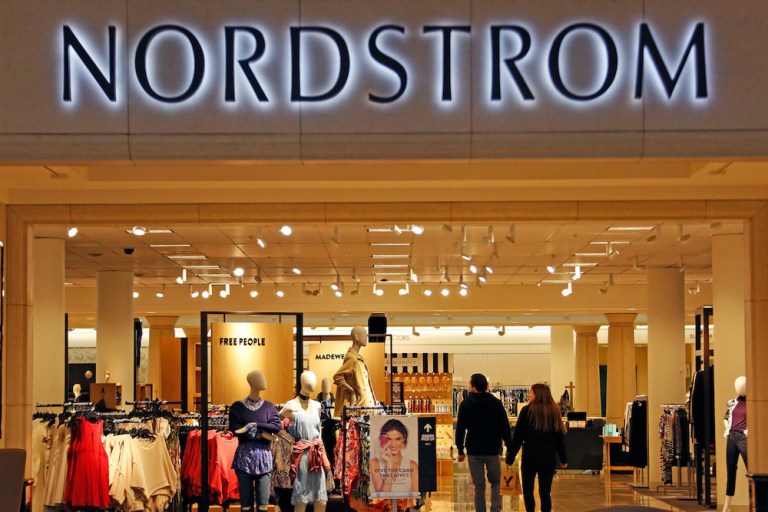Nordstrom Beats, But Rack Disappoints

It wasn’t all bad news when Nordstrom reported its Q3 earnings yesterday. In fact, the embattled retailer turned in a beat on both earnings and revenue. But falling same-store sales and an apparent stall-out at its sales-generating Nordstrom Rack line of stores were enough to worry investors and see Nordstrom’s stock price sink in after-hours trading.
By the numbers, Nordstrom reported net sales of $3.5 billion in Q3 — a pick-up of 2 percent since the same time last year. Total revenue logged in at $3.63 billion, beating analyst estimates of $3.58 billion. Earnings per share (EPS) were also better than expected: EPS came out at $0.67, as opposed to the $0.63 Wall Street analysts were looking for.
But the hurricanes had the same effect on Nordstrom as they had on many retailers last quarter, with the company noting in a release that both sales and earnings had been affected.
Same-store sales dropped 5 percent at Nordstrom’s discount chain, Nordstrom Rack, during the quarter — a reversal of the last few quarters of growth. Despite that decline, however, Nordstrom Rack’s revenue accounted for 30 percent of the company’s total revenue.
Nordstrom noted that merchandise last quarter turned out to be something of a miss, and, as a result, Nordstrom Rack locations were stuck with a lot of undesirable merchandise that it was “unable to quickly replenish with more popular items.” The chain said it is working to rectify those issues.
“We weren’t in the market as aggressively as we would like to have been to ensure that we have the right freshness and flow and … corresponding values,” the company said on its earnings call.
Its full-price stores, where it generated roughly 40 percent of its net revenue, saw comparable sales drop 4.9 percent.
On the upside, online growth was solid, generating 15 percent of net revenue and comparable sales growth of 7.5 percent. On Nordstrom Rack’s website and HauteLook, where it booked 6 percent of its revenue, comparable sales grew 33.6 percent.
That stronger online performance may offer a boost to efforts on the part of the Nordstrom family to take the business private. The intention to do so was announced this fall but was ultimately put on hold until after the 2017 holidays, as investors were nervous about putting together such a large financing package in the embattled retail sector.
Nordstrom maintains that by going private it will be able to invest and move more rapidly to adapt to the fast-changing retail environment in the digital era.